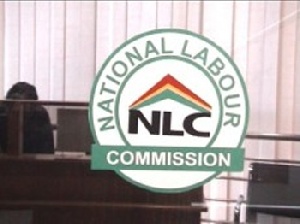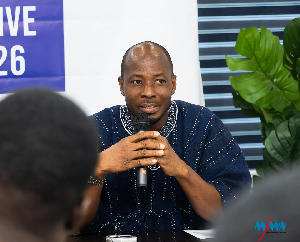The National Labour Commission (NLC) has shared its policies, strategies and how it can contribute to the long-term development of the country at the technical consultation meeting of the National Development Planning Commission.
Dr Bernice Welbeck, Acting Executive Secretary of NLC, told the Commission that the NLC anticipates a peaceful industrial relations climate where parties in an employment relationship will see themselves as partners working towards a common goal and not adversaries.
She said the long term vision can be achieved through the establishment of regional and district offices nationwide to decentralize its activities in order to ensure a speedy resolution of industrial disputes and promote co-operation between labour and management.
Dr Welbeck made these statements when the Commission made an appearance at its policy hearing towards the long-term national development plan with representatives from Ministries, Departments and Agencies (MDAs).
Dr Welbeck said with regard to the development agenda of the nation, there is the need to deepen social dialogue between the social partners to enhance the employment relationship, adding that all of these aspirations shall be met when NLC is adequately resourced with an appropriate office, equipment and logistics.
She also called for the increase of the commission's staff strength and the improvement of their capacity through training and development.
She said there is the need for Ghana to collaborate with international agencies like the International Labour Organization to promote and augment best practices.
Representatives from the Commission on Human Rights and Administrative Justice at the policy hearing said they envisioned a society that will be truly free, just and equitable; where human rights and human dignity will be respected, power will be accountable and governance will also be transparent.
According to the Commission, to reduce labour agitations to its minimum, a nationwide campaign on good worker-management relationship should be intensified, and also inform employers and workers on their rights and responsibilities under the law.
The technical consultation began on February 4, 2016, kick-starting the second phase of consultations in soliciting views and inputs from all sectors of the economy to prepare the national development plan for the nation.
MDAs including the Ministries of Petroleum, Roads and Highways, Local Government and Rural Development, Foreign Affairs and Regional Integration, Education, and Finance as well as the National Pensions Regulatory Authority, the Audit Service, Judicial Service and the Ghana Statistical Service have also shared the state of their institutions and their operations including their plans and contribution to help achieve the national development plan with the Commission.
The Commission is also expecting contributions from the Public Utilities Regulatory Authority, the National House of Chiefs in Kumasi, Microfinance and Small Loan Centres, the Ministry of Communications, the Ghana Police Service, and the Bank of Ghana towards the development of the plan.
Business News of Sunday, 28 February 2016
Source: GNA













